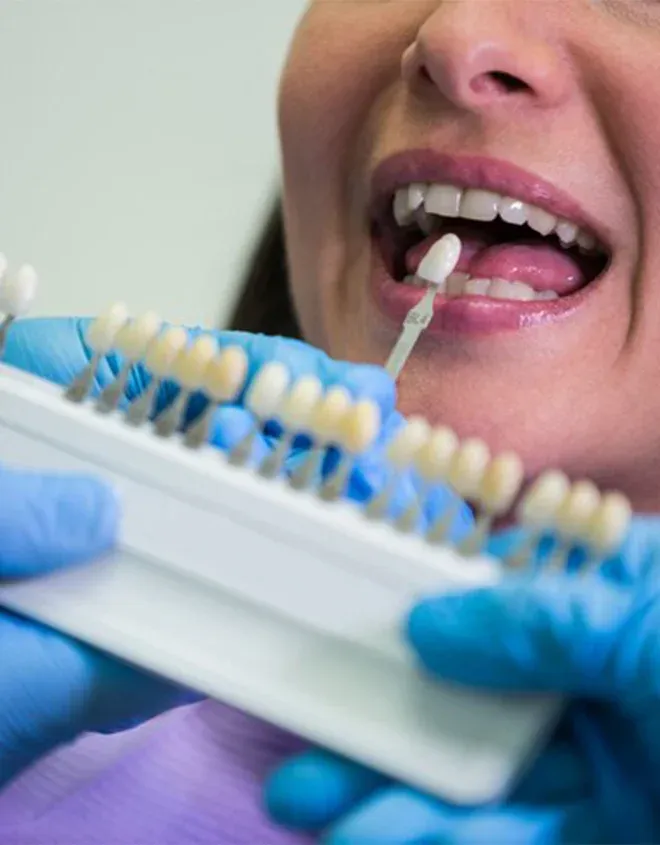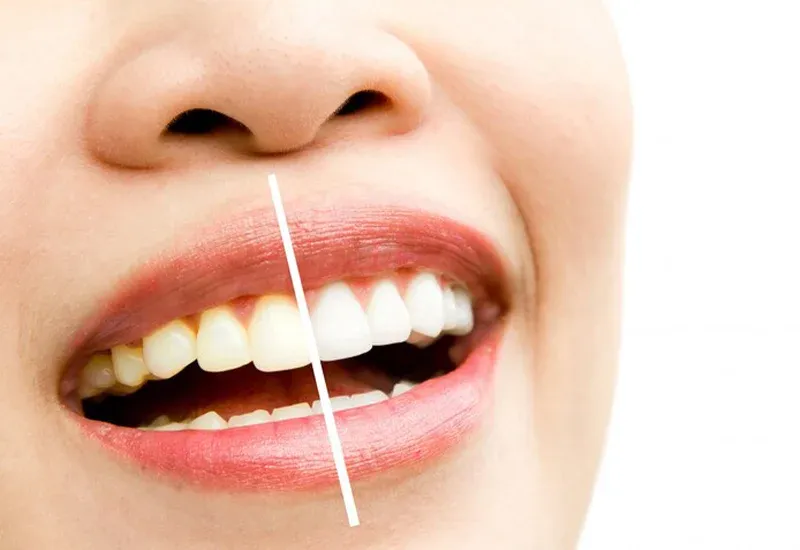How Long Do Veneers Last? Durability and Replacement Guide

by Dr. Kang
11 June 2025

Many people choose veneers to improve the shape, color, and alignment of their teeth. Once they get them, the next question usually is, "How long do veneers last?" Knowing the lifespan of veneers helps you plan your dental care, understand the long-term commitment, and make better decisions before getting them. This guide explains how long veneers last, what affects their durability, how to maintain them, and when and how to replace them.

Veneers Lifespan: What to Expect
The lifespan of veneers depends on the material, how well they are placed, and how you take care of them. Porcelain veneers generally last longer than composite veneers. Most porcelain veneers stay in place for 10 to 15 years, but some can last over 20 years if maintained properly. Composite veneers usually last 5 to 7 years.
Your daily habits and oral hygiene play a big role in how long veneers last. Chewing on ice, using your teeth to open things, or grinding at night can shorten their lifespan. On the other hand, routine care like brushing, flossing, and dental visits helps veneers last longer.
Veneer Durability: What Makes Them Strong
Veneers are thin but strong. Porcelain is often used because it resists staining and mimics natural enamel. Dentists bond veneers securely to the front of the tooth using cement. This process forms a tight seal, helping the veneer stay in place.
The bonding process matters. A well-bonded veneer has less chance of coming off or breaking. Your dentist may also adjust your bite to reduce pressure on the veneer. If your bite places uneven pressure on certain teeth, those veneers may wear out faster.
The quality of the material, the skill of the dentist, and how your mouth functions day-to-day all affect durability. Even good veneers can fail early if they are not placed correctly or are used on teeth with poor support.
Cosmetic Dental Lifespan: How Veneers Fit In
Cosmetic dental treatments vary depending on how long they last. Veneers are longer-lasting than bonding or whitening, but shorter than implants or crowns in some cases. They offer a middle ground for people who want a long-term cosmetic fix without full reconstruction.
For many people, veneers are part of a bigger dental plan. After orthodontic treatment or whitening, veneers can help refine the final look. Understanding the cosmetic dental lifespan helps you see how veneers fit into future treatments.

Porcelain Veneers Longevity vs. Composite Veneers
Porcelain veneers last longer than composite ones because of their strength and resistance to stains. They are made in a lab and fitted during a separate visit. Composite veneers are applied directly in the clinic during the same appointment.
Porcelain holds up better over time. Composite veneers may chip or stain more easily. They are often used as a short-term option or for minor changes. If you want a longer-lasting result, porcelain may be a better choice.
Some people switch from composite to porcelain after a few years. The switch is not automatic, and your dentist must examine the underlying tooth structure first.
How Long Do Veneers Last on Front Teeth?
Front teeth do not face as much pressure as molars. Veneers on front teeth tend to last longer than those on back teeth or near heavy bite zones. This makes them ideal for cosmetic improvements like fixing gaps, discoloration, or minor misalignment.
Since front teeth are more visible, people often want them to stay in top condition. This is why porcelain is often the preferred material. The front teeth also play a role in speech, so keeping them intact helps with clear pronunciation over time.
What Causes Damage
Veneers can wear down from pressure, grinding, or accidents. If you clench your jaw or grind your teeth (also known as bruxism), this adds stress that can lead to cracks or chips. Your dentist may recommend a night guard if this is the case.
Hard foods like nuts or chewing ice can also damage veneers. Even using your teeth to tear open a package puts strain on the edges. Everyday habits make a difference. Avoiding these actions helps reduce the risk of wear and tear.
Time also plays a role. The material naturally wears over years of use, especially if your bite is uneven or if other dental issues are present. Gum recession can also affect how the veneer looks and how well it stays in place.
Veneer maintenance
Dental veneer care includes brushing, flossing, and routine dental checkups. You do not need special tools or products, but consistency matters. Soft-bristle brushes and non-abrasive toothpaste are ideal.
Flossing removes plaque from between teeth and near the gumline. This helps prevent gum disease, which can affect the fit of the veneer over time. Routine dental cleanings also help identify issues before they become problems.
Avoiding stain-causing foods and drinks can help, especially with composite veneers. Even though porcelain veneers are stain-resistant, the cement or surrounding teeth can discolor, creating contrast.
Veneer replacement
Veneer replacement is part of long-term care. You will likely need to replace veneers at some point, even with perfect care. Common reasons include:
- Veneers that become loose
- Chips or cracks
- Gum recession
- Decay in the tooth under the veneer
- Changes in bite or alignment
Replacing veneers involves removing the old one, checking the tooth, and placing a new veneer. If the tooth structure underneath is still strong, replacement is straightforward. If not, additional treatment may be needed.
Veneer replacement guide steps:
- Evaluation of the current veneer and tooth
- Removal of old veneer
- Cleaning and shaping the tooth
- New impression or digital scan
- Lab fabrication of new veneer
- Fitting and bonding the new veneer
The whole process can take one to two visits, depending on whether you need porcelain or composite and how the veneer is made.
What Shortens Veneer Lifespan
Several factors shorten the life of veneers:
- Poor oral hygiene
- Gum disease
- Excessive bite force or grinding
- Improper placement
- Ignoring dental visits
It is not just about how strong the veneer is. The environment around it matters. Even strong veneers can fail early if the gums are inflamed or the bonding breaks down.
Regular dentist visits help identify small issues before they grow. Fixing a small chip early can avoid full replacement. Keeping your gums healthy and your bite balanced helps extend veneer durability.
Dental Veneer Care vs. Natural Teeth Care
Caring for veneers is very similar to caring for natural teeth. The habits are the same, but the goals are slightly different. You are not only protecting the veneer surface, but also the tooth underneath.
Veneers do not decay, but the tooth underneath can. If bacteria enter through the edges, decay may start under the veneer. Brushing and flossing stop this. Regular checkups also catch problems like decay, loose bonding, or uneven wear.
Veneers also need a bite that stays balanced. If other teeth shift, the pressure on your veneer can change. That’s why post-treatment monitoring is important.
Final thoughts
Veneers can last a long time if they are placed correctly and maintained well. Porcelain veneers have the longest lifespan, while composite veneers are better for shorter-term needs. The key to veneer durability is good care, balanced bite, and regular dental visits.
Replacement is part of the process. Knowing when and how veneers wear down helps you take control of your dental care. If you’re wondering how long veneers last, think about your habits, oral health, and long-term goals. These factors will shape how well your veneers perform over time.
Contact your Dentist today, Dr Kang at Redwood Dental Napa, to learn more about Veneers.
Resource:
Dental Implants, Dentures, and More: Napa’s Prosthodontic Treatments Explained
Share This:
Disclaimer
*This media/content or any other on this website does not prescribe, recommend, or prevent any treatment or procedure. Therefore, we highly recommend that you get the advice of a qualified dentist or other medical practitioners regarding your specific dental condition. *

